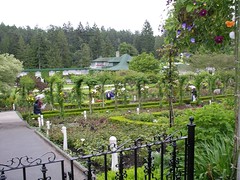The Fundamentals of Efficient Vegetable Garden Landscaping
Gardens are not only planted to beautify a place. They are also made to provide people with food. Such is the purpose of a vegetable garden.
Many people plant vegetable gardens because vegetables are easy to grow. In fact, 6 out of 10 gardeners grow vegetables. However, to maximize the production of the crops, a gardener needs to do proper vegetable garden landscaping.
Good vegetable garden landscaping starts with placing the garden in an area where the plants could get 6 to 10 hours of sunshine in a day.
Next, check the soil to make sure it is in good condition. But this cannot be done just by looking at the soil. Instead, a sample should be sent to an agricultural extension agent in the area for testing. Soil tests are cheap around $ 4 to $ 6. The results will help the gardener determine what should be added to the soil to grow healthy crops.
If the soil is of average quality, a gardener can enrich it by adding compost. Compost materials are decayed leftovers from leaves, vegetables and other organic compounds.
Leveling the soil is also essential in vegetable garden landscaping. Leveling will prevent the soil from forming low areas where water would pool.
The garden is now ready for planting. Plant arrangement is important here. Perennial vegetables, like asparagus, should be planted separately from annual ones. When planting annual vegetables, a trench should be made in the soil. Once done, the vegetables should be watered gently.
Basically, the vegetable garden is complete. Soon, however, insects will come to prey on the young plants. To protect them from these insects, a wall of cardboard must be placed around the plants. Although this destroys the aesthetic beauty of the garden, it is nonetheless essential for protection. When the plants are mature enough, the cardboard wall could be removed.
Effective vegetable garden landscaping allows crops to grow healthy. However, the garden still needs to be tended once in a while. Aside from watering the plants regularly, a layer of straw mulch should be sprinkled over the soil. Straw mulch evens out the soil temperature and reduces moisture loss. It also reduces the presence of weeds and lessens the need for the gardener to water the plants often.
The success of a vegetable garden starts with the basics. With these simple things in mind, the gardener can be sure of a good harvest.
Related Gardening Articles

